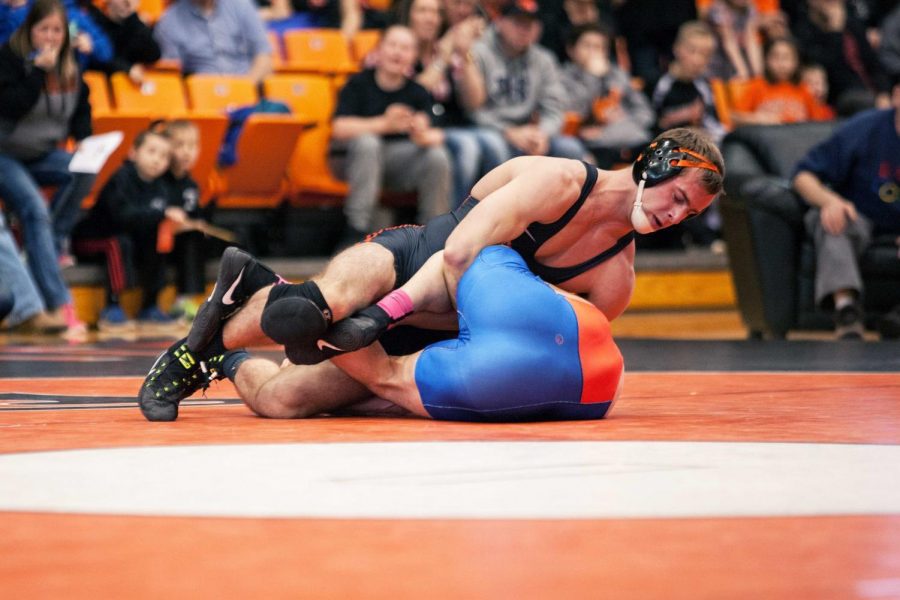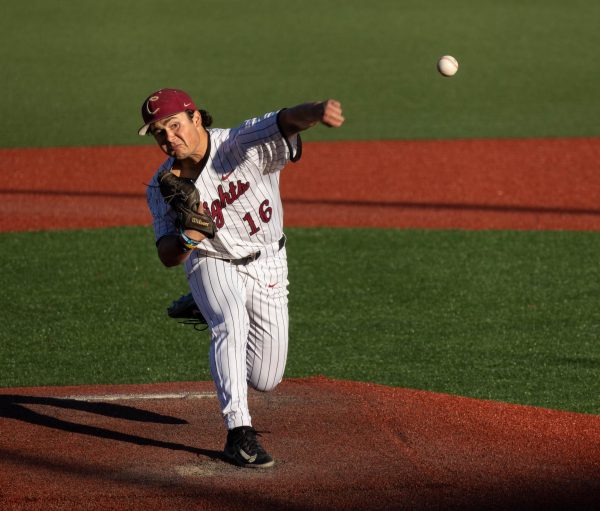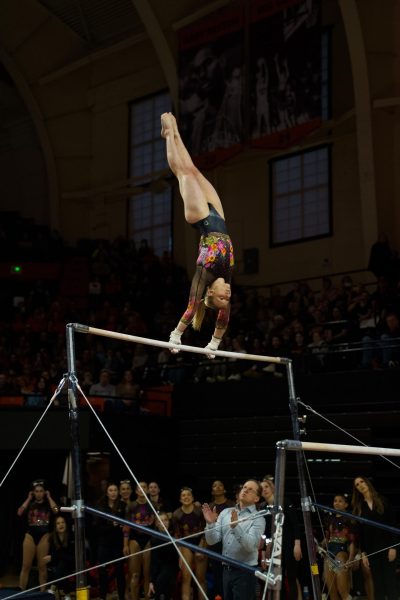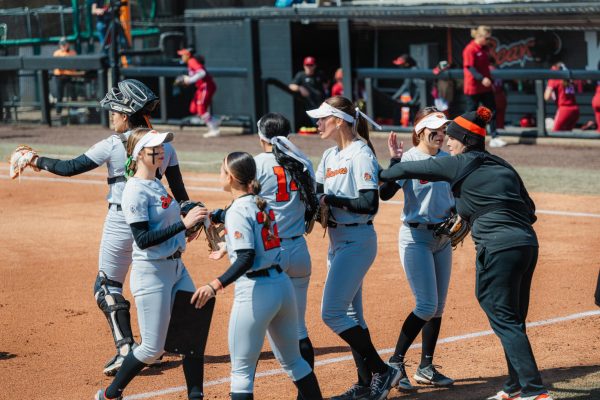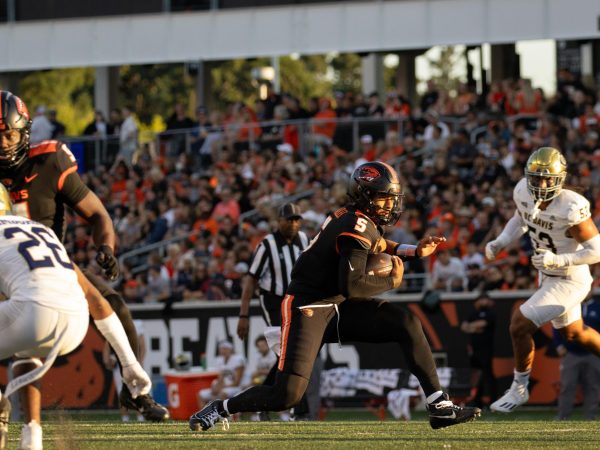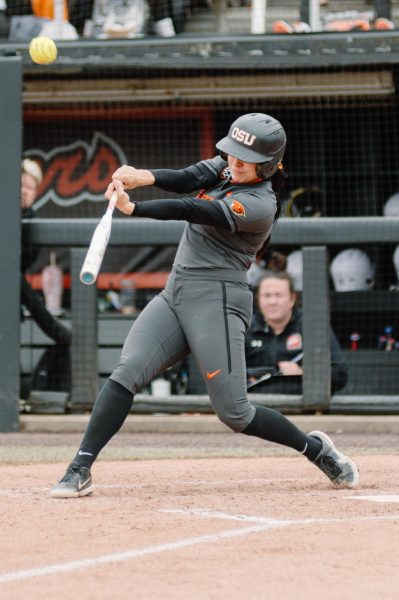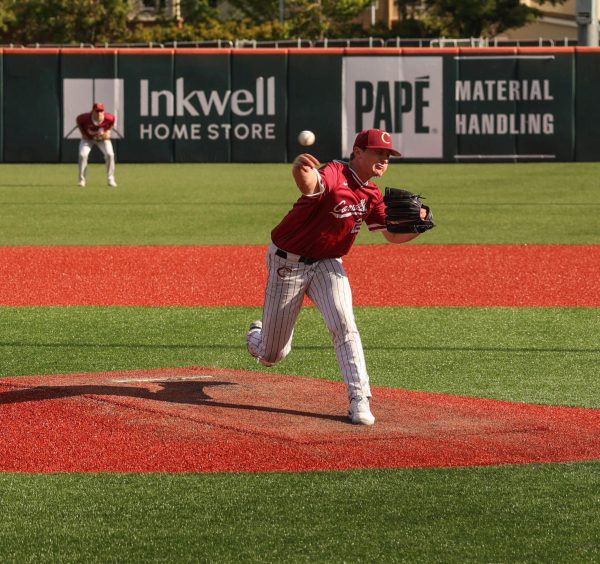OSU wrestling team debunks rumors about cutting weight
February 24, 2016
“Oh they must not eat.”
“They take diet pills.”
“They must be in the sauna all day.”
“I’ve heard they throw up and take diuretics.”
“The more weight you lose, the more successful you will be.”
All the above are claims the Oregon State Wrestling team has heard throughout the years about how they lose their weight.
While these methods may be true for other wrestlers around the country—including high schoolers—head coach Jim Zalesky is proud of the way his team loses their weight.
“I don’t even like the term ‘weight cutting’,” Zalesky said. “For us, it’s not weight cutting. We aren’t losing drastic amounts of weight in little time. We are getting down to our ideal weight in a healthy manner. It’s just about leaning yourself and competing at your ideal weight.”
‘Weight cutting’ is the practice of rapid weight loss prior to competition. As a former high school wrestler, I witnessed weight cutting as guys would run in sauna suits, just minutes prior to weighing in and then stuffing their face right after—sometimes gaining as much as 15 pounds. This process is not only detrimental to your body, but also detrimental to your wrestling.
“To become a better wrestler, you can’t be worrying about your weight constantly,” senior 165-pounder Seth Thomas said. “Your weight can’t be a problem—especially at the college level. Once you weigh in, there’s hardly any recovery time prior to competing.”
One of the biggest differences college wrestling had made to make the sport safer is pushing weigh-ins as close to match time as they can. Zalesky noted that weigh-ins used to be five hours or even a day in advance. Allowing time for guys who ‘cut weight’ hard before weigh-ins, to replenish. Whereas now, it deters that strategy and wrestlers are now wrestling closer to their weigh-in weight.
In high school, I would see wrestlers lose 10-15 pounds a day and spit in a cup during classes. I would also see wrestlers wear sauna suits during class to lose additional weight. These methods and measures are unnecessary and dangerous.
Once you reach the college level of wrestling, the methods used to lose weight are safer and less severe compared to high school.
“I’ve definitely improved the way I lose weight,” Thomas said. “For me, it’s become easy for me to make weight because I know what I’m doing and I can do it in a safe and methodical manner. All I do is eat healthy and go to practice. I lose my weight at practice and then if I’m a little over, I might just take an extra workout or jog.”
One of the biggest misconceptions about wrestlers that I’ve personally heard over the years is all wrestlers starve themselves. While there are cases of wrestlers who skip meals, it’s unwarranted and could easily be avoided.
“I tell my guys all the time that I used to actually eat more during the season,” Zalesky said. “Because I was burning so many calories and needed to replenish myself. If you are eating the right things and burning your calories, you should be eating more.”
Zalesky also noted that they have a dietitian on staff to assist wrestlers in planning a diet well suited to them.
There was an article published by former All-American and two-time NCAA champion Jordan Burroughs where he said instead of cutting weight, wrestlers should instead move up in weight. They should concentrate on lifting and getting bigger and enhancing their skills set. He said too many kids these days are concentrating on losing weight and not on improving their skills.
Zalesky strongly agrees with Burroughs’s stance.
“I find a lot of truth in that article,” Zalesky said. “All of our guys are at the weight they should be and we really don’t worry about the guys and their weights. None of our guys are making big ‘cuts’ and instead we concentrate on their skillset.”
“My walking around weight normally is about 170-175 pounds,” Thomas said. “Wrestling at a weight close to my natural weight has definitely helped me as a wrestler, that way I’m not always concentrating on making weight.”
Losing weight isn’t about having the ability to starve yourself or the ability to workout 5 hours a day—it’s about having discipline.
“It takes a lot of hard work and discipline,” Zalesky said. “That has to be one of the hardest aspects about this sport. Staying discipline with your weight week to week.”
Instead of condemning wrestlers for losing weight, we should be applauding them. There are many things you can learn from these wrestlers about what it takes to achieve your goals and maintain self-control.
Rather than associating “starving”with losing weight, we should replace it with discipline.












































































































